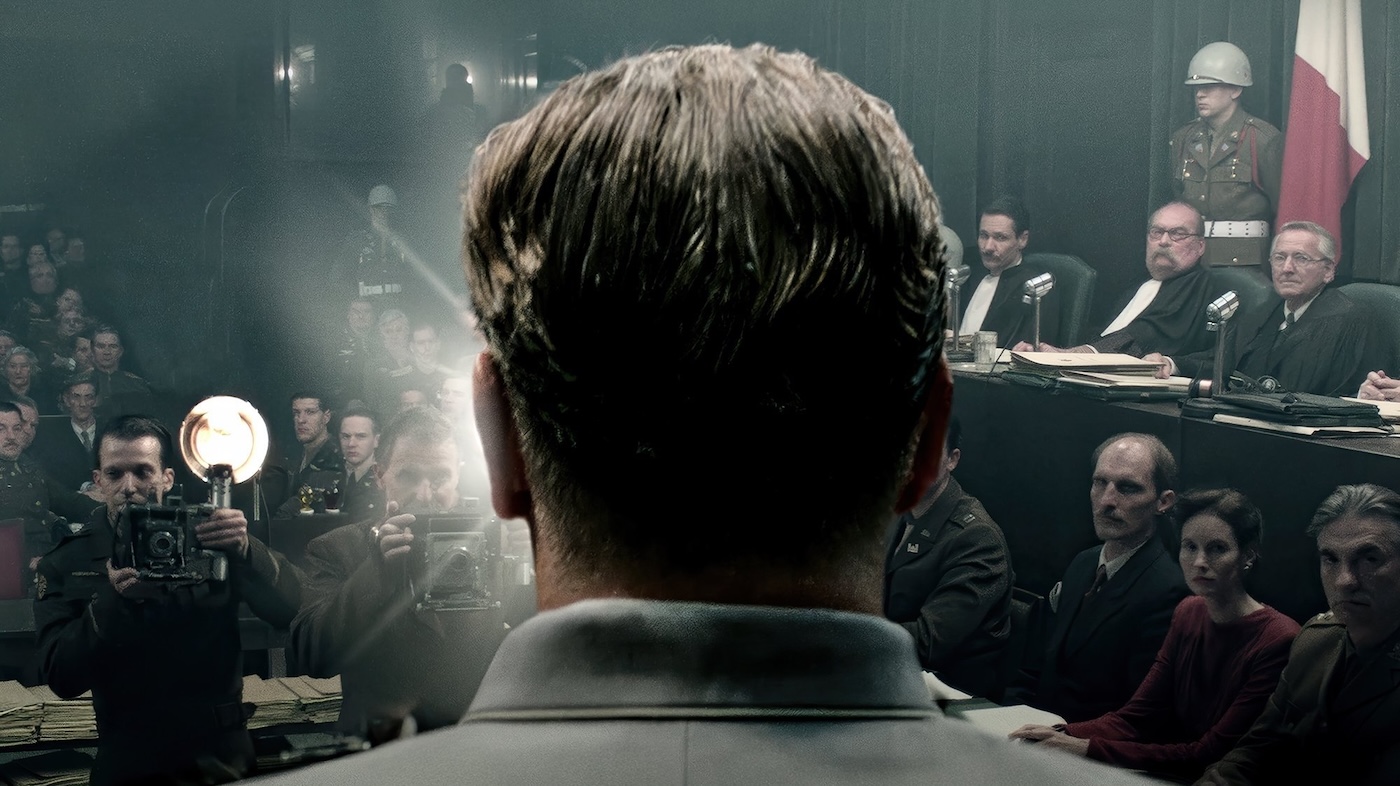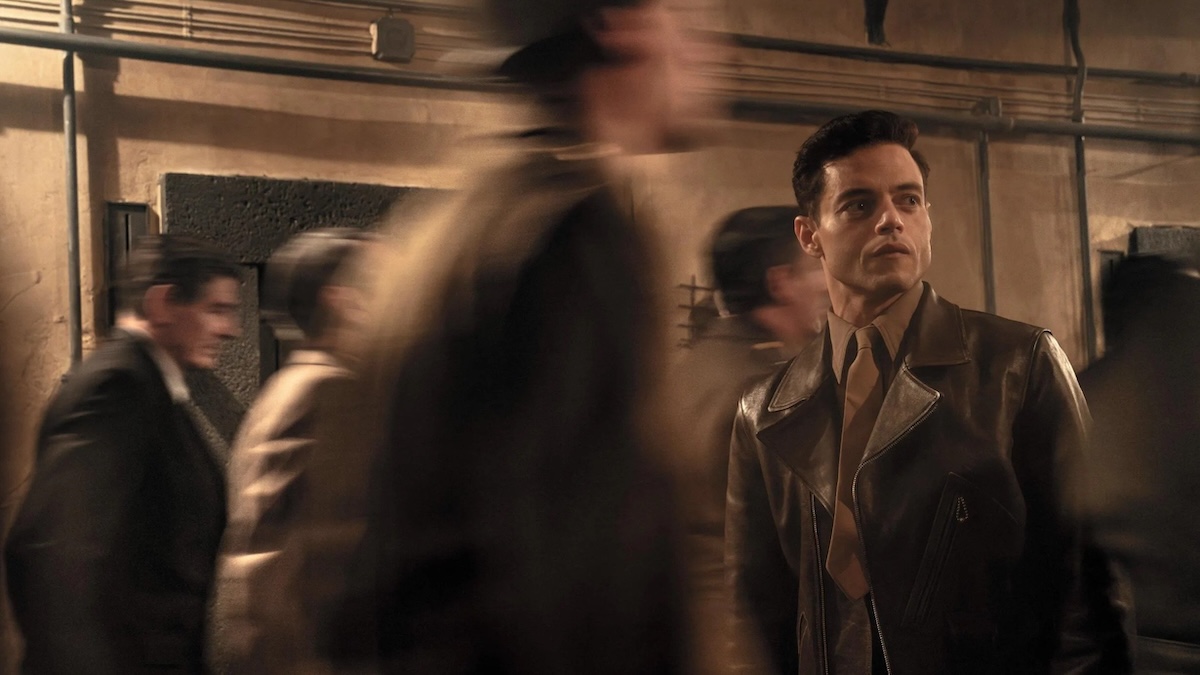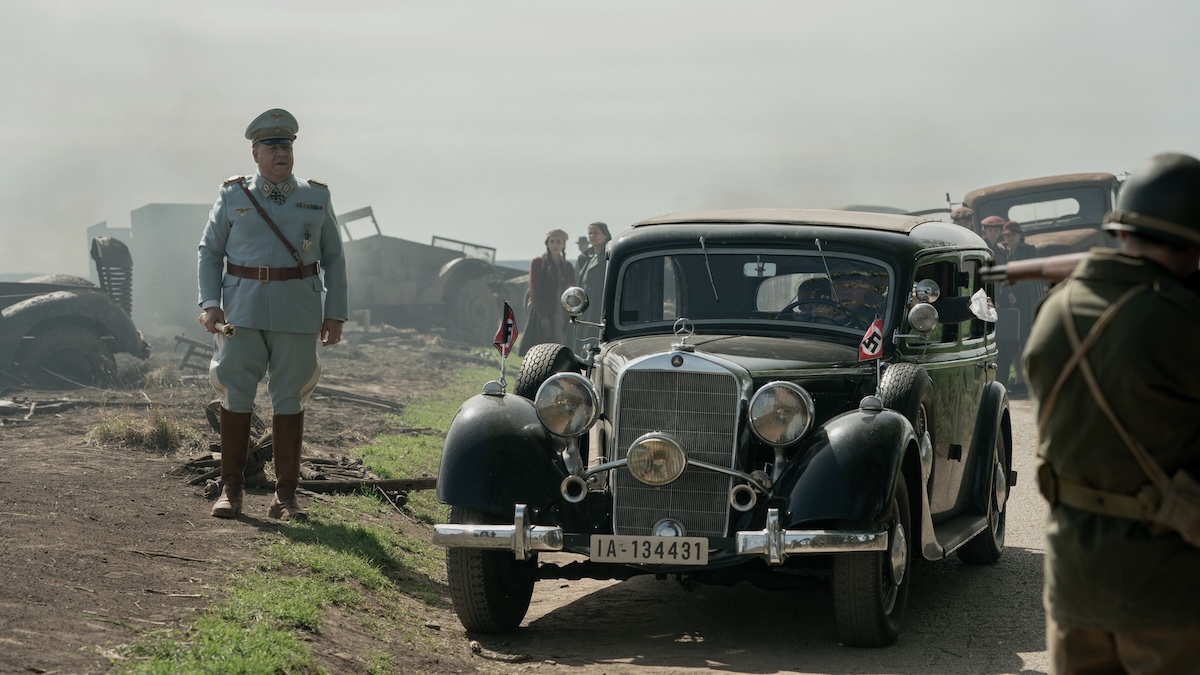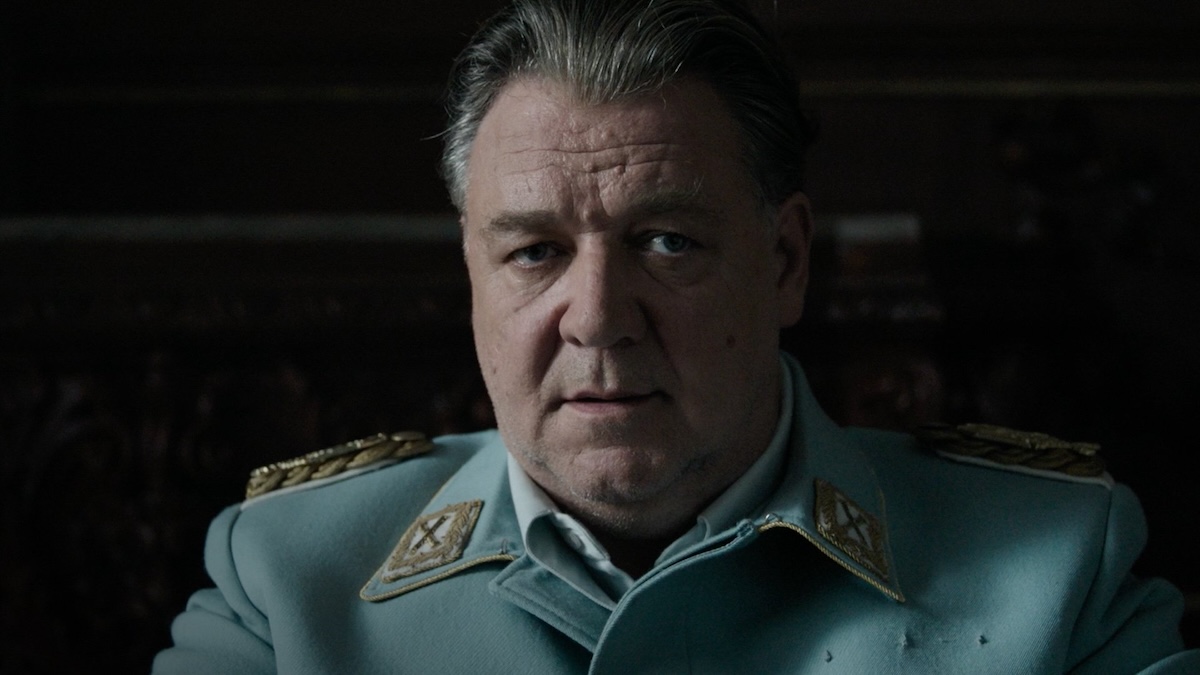NUREMBERG (2025)
A WWII psychiatrist evaluates Nazi leaders before the Nuremberg trials, growing increasingly obsessed with understanding evil as he forms a disturbing bond with Hermann Göring.

A WWII psychiatrist evaluates Nazi leaders before the Nuremberg trials, growing increasingly obsessed with understanding evil as he forms a disturbing bond with Hermann Göring.

The Nuremberg trials have always held a certain fascination for me. Part of this is because the pure evil of the Nazi regime is something completely outside of my experience. The fact that TV shows about Nazis make up the bulk of historical programming tells me that I’m not alone in this fascination. But, apart from Nazis in general, I was also interested in the Nuremberg trials from a psychological perspective. The idea that men could not only commit heinous crimes but, when confronted, be completely unrepentant is something that has always both troubled and intrigued me.
Needless to say, when I saw that James Vanderbilt would be writing and directing Nuremberg, starring Russell Crowe as Herman Göring, I was beyond intrigued. And I wasn’t disappointed. Despite some flaws in the execution, including at least one unnecessary historical inaccuracy, the film does its job well. What is that job? It asks audiences to look for the evil already present in themselves and in their society.
This fictionalised historical account takes place directly after the end of World War II and follows army psychologist Douglas Kelly (Rami Malek), who’s brought to Nuremberg to analyse and ensure the mental stability of 22 Nazi war criminals about to be put on trial for crimes against humanity. Foremost of these criminals is Hitler’s second in command, Reichsmarschall Herman Göring (Crowe). Kelly’s initially naïve and hubristic attempt to analyse evil so that it can eventually be isolated and eradicated is put to the test as he becomes more friendly with the charming Göring. This friendship does not end well for either man.
It’s easy to see why Kelly, or anyone really, would be easily drawn into conversation or even friendship with Crowe’s Göring. The Australian actor gives this ostensible villain an easy laugh and slightly self-deprecating charm that disarms even the audience. That combined with the character’s genuine concern for his wife and daughter almost make Kelly and the viewer forget the monster behind the mask. Almost.

Beneath his charm, Crowe manages to offer a continual peek at the true villain lying within. There are enough moments for ominous proclamations and enough cold, hard looks to make us both fascinated by Göring and disgusted by him.
Though other performances in the film are solid and Rami Malek continues to intrigue and enthral, Crowe stands as the foundation that sets Nuremberg apart from other historical adaptations of the time period. It’s difficult to stress how much this performance amplified and heightened the film’s themes and message.
When Douglas Kelly, who, throughout the movie, expresses doubts over how much Göring actually knew about the extermination camps, finally realises the truth, I felt almost as betrayed as Kelly did. Even though we know Göring was a master manipulator, Crowe ensures that many audience members still fall into the trap.
Of course, that is, in the end, the point of Nuremberg. This piece sets out to prove to us, members of modern society, that most Nazis were not different from us in terms of either psychology or makeup. They were human beings, the same as we are. That is what makes them so frightening and so dangerous.
If we, as human beings, fall into the same traps of anger, hate, and division that the Nazis set for their countrymen, we could easily find ourselves being ruled by a totalitarian regime.

This message falls in danger of being diluted by an over-the-top performance by Michael Shannon as Chief US Prosecutor Robert Jackson. That’s a pity because the real Jackson was a fascinating, funny, soft-spoken man. What we get from Shannon is mostly anger and frustration, neither of which is tempered by anything.
Two other scenes in the film also threaten to dull the theme’s impact. One with some unnecessary historical blame that stokes the kind of hatred Kelly tried to warn us against, and another with historical whitewashing.
The first scene in question takes place in the Vatican and sees an, again, angry and frustrated Jackson all but blackmailing the Pope (Rory Kinnear) to back the trials and provide evidence for the prosecution. In his tirade, in which the Pope is given almost no opportunity to defend himself, he accuses the Vatican of being somehow sympathetic to the Nazi regime.
The truth is, the scene is entirely fictional. Jackson and the pontiff never met. And the Vatican needed no prompting to back the trials or provide documentation condemning the Nazi defendants. They did so readily and willingly. This scene, especially when viewed in places where anti-Catholicism is already rampant, risks perpetuating harmful stereotypes about both the Catholic Church and Catholics in general.
Another scene has Jackson detailing to Douglas Kelly how the Nuremberg laws, passed in 1935, provided legal precedent for the atrocities that would follow. In, what anyone familiar with the history of the Nuremberg Laws, can see as a huge gap, Jackson fails to even mention that the 1935 Nuremberg Laws were modelled on the Jim Crow laws of the southern United States. This is a huge missed opportunity to show Americans that, had Hitler been born in the South, we may have been holding our own Nuremberg trials.

In a truly accurate film about the trials, no country, church or individual should walk away with their hands entirely clean. It wasn’t only people in Germany who let this happen, and Vatican City was not the only non-German-speaking country to kowtow to Nazi demands.
The truth is, people all over the world let this happen. In Vanderbilt’s version of events, the hands of the secular Allied governments come away looking a little too clean to be entirely believable.
That said, while these scenes present missed opportunities to reflect on the nature of culpability and collective guilt, strong writing elsewhere in Nuremberg brings the film home.
This is especially true in the lovely character arc of Howie Trieste (Leo Woodhall). Trieste works as Kelly’s German interpreter and, after the film’s “dark night of the soul,” reveals to Kelly that he’s a German Jew whose parents were killed at Auschwitz. Having seen the rise of the Nazis first hand, Trieste realises much earlier than Kelly, that Germans are no different from Americans or British citizens or the French. He saw the conditions that led to otherwise normal people following an unthinkable regime. In essence, he recognises their humanity.
This comes full circle beautifully when, towards the end of the film, Trieste has an opportunity to take a certain level of revenge and chooses not to. Unlike some scenes in the film, this scene is based Trieste’s own recollections of the trial and is beautifully shot, acted, and portrayed.
Moments like this, as well as Crowe’s powerhouse performance and Malek’s earnest delivery of the end warning, serve to bring the theme home. As Douglas Kelly states at least twice in the film, the Nazis weren’t different from us. And, if we keep giving in to division and hatred, we’ll create an environment for modern totalitarian regimes to grow and thrive.
Is Nuremberg an enjoyable watch? Not really. But it’s thought-provoking and beyond necessary for the times we live in.
USA • HUNGARY | 2025 | 148 MINUTES | 1.85:1 | COLOUR | ENGLISH • GERMAN


director: James Vanderbilt.
writer: James Vanderbilt (based on the book ‘The Nazi and the Psychiatrist’ by Jack El-Hai).
starring: Russell Crowe, Rami Malek, Leo Woodall, John Slattery, Mark O’Brien, Colin Hanks, Wrenn Schmidt, Lydia Peckham, Richard E. Grant & Michael Shannon.
